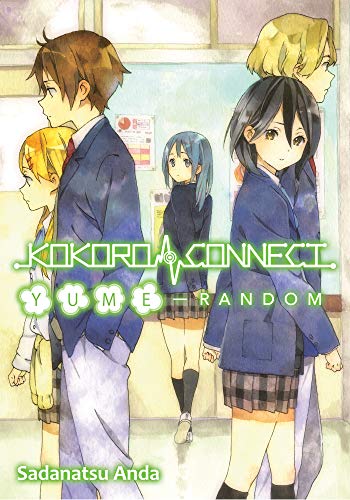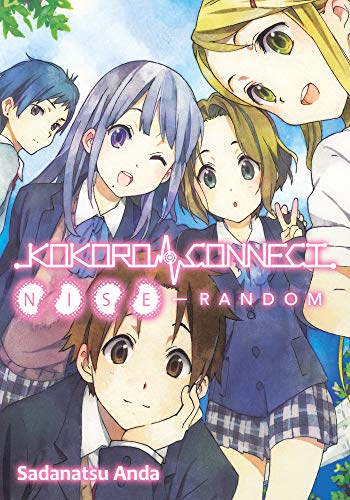By Sadanatsu Anda and Shiromizakana. Released in Japan by Famitsu Bunko. Released in North America by J-Novel Club. Translated by Molly Lee.
I get the feeling the author needed a break from the angst as much as the reader did. The last few regular volumes of Kokoro Connect have been rather excruciating, if well-written, and all signs point to the next two books coming up as being even worse. (There are some hints and foreshadinwg in this book as well, the only really serious moment in it.) As a result, even more than the last collection of Short Stories, Step Time allows us to relax and enjoy the cast being together without the threat of Heartseed hanging over them. It also allows the author to go back and take care of some business. Kokoro Connect began with the Cultural Research Club fully formed, our heroes all in it and friends with each other, and Iori and Inaba best friends. So here we get to see how that happened in the first place, in two stories which read like one part destiny to eight parts slice of life.
The book has four largish stories in it. The first, as I suggested, deals with how the CRC was first formed by their teacher (still a normal lazy teacher at this point) and Taichi and the rest talking and realizing they don’t share many interests and all want to be in different clubs anyway. That said, there’s clearly something about these five kids… it’s not the most subtle story in the world, but does a good job of showing why the CRC hang out with each other in the first place. It’s part of a mini-theme in this book of “don’t overanalyze things”, which brings us to the second story, where Inaba and Iori tell the CRC how they came to be friends. This is probably the strongest story in the book (the lack of Taichi POV helps), as Inaba’s natural grumpy cussedness hits up against Iori’s “I am already losing my ability to pretend” complexes and the two have to deal with a stalker of Iori’s.
The third story is also good, though you kind of want to take Kurihara and throw her into the nearest lake. She’s one of the group of girls in the class who aren’t Iori, Inaba or Yui, and she’s very frustrated at the fact that, although there are now three couples in their little group, none of them are having lovey lovey date time. As such, she and an enthusiastic Iori decide to have the three couples (Taichi x Inaba, Yui x Aoki, and that other girl x that other guy) do a triple date, supervised by Kurihara herself. The best part of this is Taichi and Inaba, who really are a terrific couple, as they find out. The last story focuses on Fujishima, who is once again brilliant at everything except ordinary social interaction, and her attempts to figure out why others in their school consider the CRC members “cool”. She’s joined by the two junior CRC menbers, Shino and Chihiro, both of whom are equally socially awkward. What follows is, again, “don’t overanalyze things”, with a healthy dose of Fujishima being oblivious to her own powers of attraction. (She also confirms she is bisexual, almost offhandedly.)
So again, if you love the cast but hate seeing them suffer, this is a terrific volume to pick up. And if you enjoy seeing them suffer… well, Volume 9 should be coming soon.




